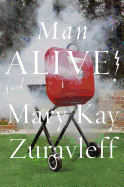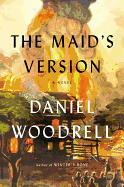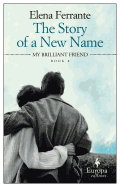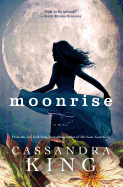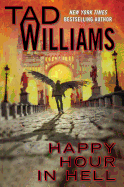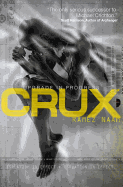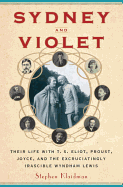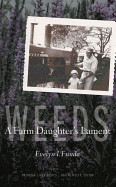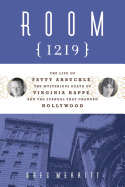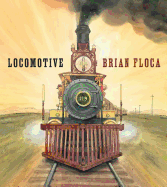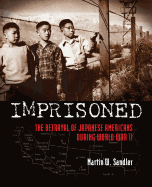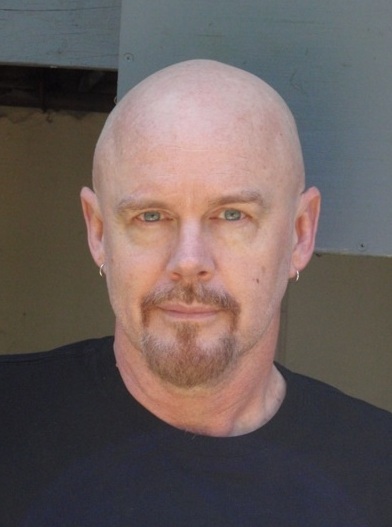 |
| photo: Deborah Beale |
Tad Williams is a prolific fantasy author. His first novel, Tailchaser's Song, was published in 1985, and he's continued to write series and stand-alone novels since then. He worked a variety of jobs--including shoe salesman and radio host--before his move to writing full time. He lives in the San Francisco Bay Area with his family, which includes a wife, children, cats, dogs, turtles, pet ants and banana slugs.
His latest novel, Happy Hour in Hell (DAW), reviewed below, is the second (following The Dirty Streets of Heaven), in a planned trilogy about the war between Heaven and Hell, written in a noir style and starring Doloriel--Bobby Dollar--an angel who has fallen hopelessly in love with his demon lover. Bobby must literally travel to Hell and back to rescue her.
Tell us about the Bobby Dollar series. Why did you want to write about an angel? Why did you write in noir style?
Having grown up on Cold War espionage and film, the initial attraction for me was the idea of the mythology of Heaven and Hell as the longest-standing Cold War of all time because they can't, or don't, outright go to war with each other in a larger sense. That's supposedly being saved for the end of days or something. So it's basically like the Cold War, and I thought it would be cool to write sort of an espionage thing where the main character doesn't trust his own side and certainly doesn't trust the other side.
When I started to play with the idea seriously, though, I really wanted the main character to be the narrator and as soon as I started messing with that, I realized it had much more kind of a noir feeling. Once I wrote a little bit in the character's voice, it began to feel even more and more noir. And while I didn't want to write a standard noir, I did want to use that kind of feeling, not only for the immediacy of the character talking to the audience, but also the kind of urban, modern environment that could bring in all of that Cold War stuff.
Where does Doloriel's human name, Bobby Dollar, come from?
I wrote a series of short stories about a '70s stoner named Pogo Cashman who gets involved with famous fantasy adventures. Pogo comes from my name, Tad, because in the comic strip Pogo, which my mom read when I was little, they called the little animals "Tads." That was my nickname since I was small and that just stuck. There's some connection between the name William and money that I found once years ago and I can't remember what it was.
Later on, I wrote another character in a book called War of the Flowers, who was a much less happy version of myself. He was a failed musician with no real life. His name was Theo Vilmos--Theo is short for Theodore, and that's what a lot of people used to think Tad was short for. Vilmos is the Hungarian version of William. So that was kind of a Tad Williams substitute.
Bobby, then, comes from my real name, Robert, which I never use. Dollar ties back to the money equivalency, which I'll have to go back and look up someday because people are now asking about it again. I think somewhere along the line, when I was thinking about this angel character, I was thinking of him as being sort of a Tad-surrogate. I also like the fact it sounds kind of Ring Lardner, kind of Damon Runyon. It has that kind of 1930s-1940s raffishness, like Guys and Dolls, and so I very much modeled all the angels' nicknames in that kind of way.
Where do some of those exquisite tortures and scenes come from? Did you do research?
Yeah, absolutely! I don't think you can write a good, fantastic novel without grounding yourself very thoroughly in reality, because the audience has to feel that you know what you're talking about and they're being smoothly, professionally conveyed along. Every time you force them to drop out of the narrative to consider something from an outside perspective, then you've lost whatever emotional buildup you've got. So I researched like crazy.
You know, it's a little harder to research things like heaven and hell, because interestingly enough, especially with heaven, there's very, very little literature. Heaven is mentioned incessantly, but the number of people who have claimed to have actually seen heaven are mostly pretty obscure saints or prophets or crazy people from the first millennium. They're not world-building fantasy writers. They weren't describing these things, but saying, "I saw it in a vision, the holy city," and so on. That doesn't exactly tell you how the holy city works.
The rest of it is pretty much science fiction and fantasy world-building, trying to turn an idea into something that feels like it makes structural sense. It's weird to say that about something like Hell, but I'm trying to imagine that if Hell really existed and it served this more or less same purpose as humans believe that it does, how would it work? What would the function of it be? How do you prevent something like torture from becoming ho-hum after a while?
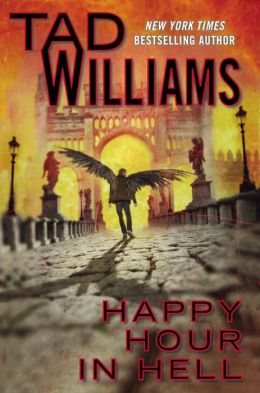 The scene in which a female socialite demon has Bobby tied down to the bed for sexual torture had me gasping.
The scene in which a female socialite demon has Bobby tied down to the bed for sexual torture had me gasping.
Yeah, you know, there are certainly elements of folklore in that in terms of succubus and things like that, but that character was based on a real person who lived in 1920s Romania. Her name was Vera Rensey who did, in fact, kill her lovers and kept them in zinc coffins down in her basement.
I wanted Bobby to be in this really horrible position. And there's also a part of me, at a political level, that wanted to write something that would make men understand rape. I feel like that's a journey a lot of men really don't understand. Since we're dealing with Hell and torment, I thought, well, that's a thing that most men kind of either dismiss, or only think about being raped by males in prison. I was trying to come up with something a little more sophisticated but also play on the deep social, human fears that we all have.
Happy Hour in Hell is the second of a three-book series. What's next for Bobby Dollar?
I've actually finished the third book, called Sleeping Late on Judgment Day, at least in first draft. So I know what happens in the third volume. And it's kind of a little odd for me, because this is not a trilogy in the normal sense that I usually write these things.
What I usually do with a multi-volume book is it's really one big story. It has an arc, and it just happens to be distributed over several volumes cause they're so goddamned long.
What I wanted to do with this was to have some cohesion for the first three books so that people would get a chance to follow this all the way through and hopefully get caught up in the continuing mysteries from book to book. Then, by the end of the third book, what I intend to do is to set up a new square one for Bobby as a character and then do single, stand-alone books, more like standard crime fiction.
So you could pick up any one of the books and read it as a single story, which is a little more difficult with these first three. That's my plan in the long run--I write Bobby Dollar books because I really enjoy them. They're really fast to write; I knock them off in a few months, compared to a year and a half or two years. That way, I'll be able to write other books as well. I intend to keep doing Bobby Dollar, just not exclusively.
The fourth one, which is not written or even started, is tentatively called Forever O'Clock, and it will be a stand-alone novel. --Rob LeFebvre, freelance writer and editor
Tad Williams: The Longest-standing Cold War of All Time
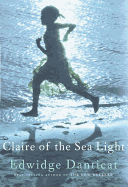 Now there is Claire of the Sea Light, in which Danticat weaves stories that evoke a country where people live ordinary lives in extraordinary circumstances; where tragedy and routine, love and hate, grace and violence must coexist. I've loved her work since the mid-1990s, when I read Krik? Krak! (with its epigraph from poet Sal Scalora: "We tell the stories so that the young ones/ will know what came before them./ They ask Krik? we say Krak!/ Our stories are kept in our hearts.").
Now there is Claire of the Sea Light, in which Danticat weaves stories that evoke a country where people live ordinary lives in extraordinary circumstances; where tragedy and routine, love and hate, grace and violence must coexist. I've loved her work since the mid-1990s, when I read Krik? Krak! (with its epigraph from poet Sal Scalora: "We tell the stories so that the young ones/ will know what came before them./ They ask Krik? we say Krak!/ Our stories are kept in our hearts."). 



 The scene in which a female socialite demon has Bobby tied down to the bed for sexual torture had me gasping.
The scene in which a female socialite demon has Bobby tied down to the bed for sexual torture had me gasping.